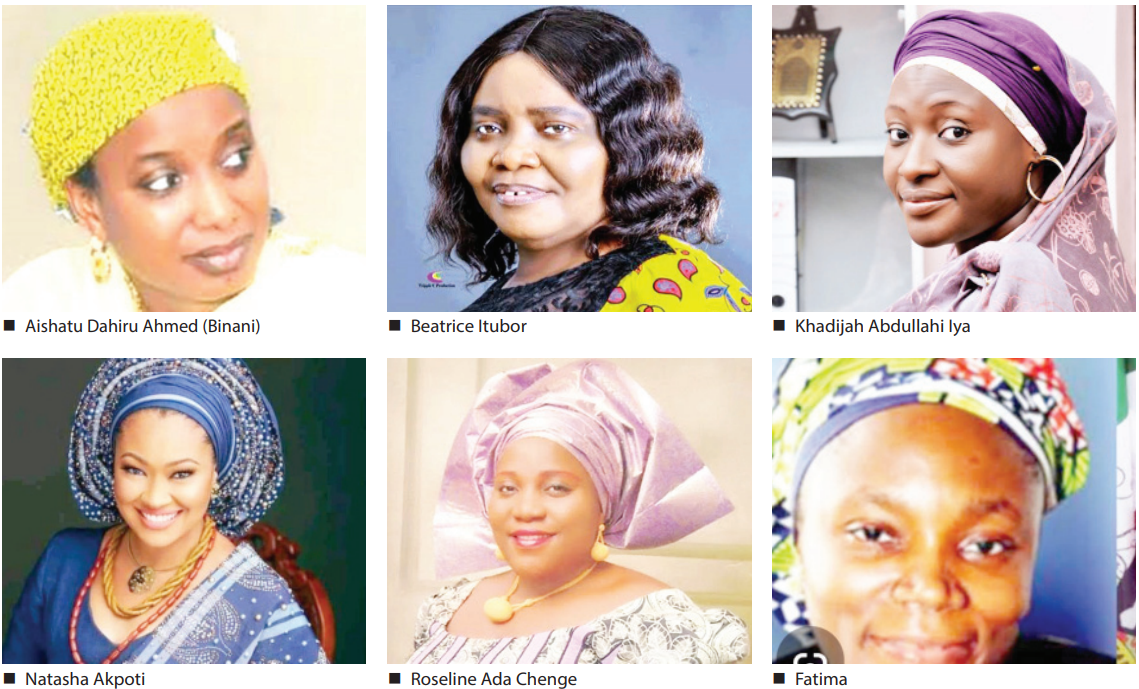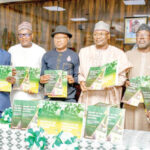Ninety-six per cent of women who contested for various positions in the just concluded 2023 general elections lost to their male counterparts, Daily Trust reports.
A total of 1,553 women were on the ballot for the presidential, governorship, national and state assemblies’ elections held on February 25 and March 18, this year.
Out of a total of 15,307 candidates who contested under the 18 registered political parties during the 2023 general elections, males constituted 13,754, which represented 89.8 per cent while the 1,553 female candidates represented 10.1 per cent.
The analysis of the results declared by the Independent National Electoral Commission (INEC) showed that only 72 women got elected at federal and state levels, while 1,487 lost.
These figures included Kebbi and Adamawa states, where supplementary elections were held on April 15.
Why Adamawa gov’ship election should be cancelled – Ardo
While Kebbi had no female contestant in the just concluded supplementary election, Aishatu Binani, of the All Progressives Congress (APC) in Adamawa lost to the PDP candidate, Ahmadu Fintiri, who has Professor Kaletapwa Farauta, a female as running mate.
A breakdown of the 72 women that won elections showed that seven of them were elected as deputy governors; Dr Hadiza Balarabe(Kaduna), Josephine Piyo (Plateau), Dr Akon Eyakenyi(Akwa Ibom),Dr Ngozi Nma Odu(Rivers), Engr Noimot Salako Oyedele(Ogun), Patricia Obila(Ebonyi) and Professor Kaletapwa Farauta (Adamawa).
Seventeen of the women made it to the National Assembly – three in the Senate and 14 in the House of Representatives.
In states, a total of 48 women made it to the various state houses of assembly.
Money, culture, religion worked against us – Candidates
A cross section of female candidates interviewed by our correspondent explained their inability to coast to victory at the polls.
Binta Umar, the lone female governorship candidate of the Action Alliance (AA) in Jigawa State, blamed the abysmal performance of female candidates to lack of cooperation by fellow women.
Binta was defeated in the March 18 governorship election by Malam Umar Namadi of the APC. Though she was said to have joined the PDP weeks before the election, her name was on the ballot.
In an interview with Daily Trust, she attributed the failure of female candidates in the general elections to lack of cooperation of women, adding that “the population of women is enough to give you the winning votes”.
She noted that money is an integral part of politics “if you have money, you win elections, if you don’t have money you will lose no matter how you try”.
While highlighting culture and religion as factors that played in her losing the election, she advised women not to give up contesting for elections even if they fail. On her part, Beatrice Itubor, the Labour Party governorship candidate in Rivers State, said she is in court to reclaim what she tagged, “stolen mandate.”
She added that the use of money and violence during the elections should be totally condemned.
“Violence and money politics are the two banes. They brandished ill-gotten money to edge us out. They know people are vulnerable because those in government have ‘weaponised’ poverty and they are using that weapon against everybody,” she said.
Also, Khadijah Iya Abdullahi, who contested for the governorship in Niger State under the All Progressives Grand Alliance (APGA), attributed her failure to electoral irregularities. She lost her bid to occupy the apex seat in Niger State to Muhammed Umar Bago of the APC.
“Massive vote buying, collusion with INEC and security officials, even our party officials at the polling units and collation centres were in bed with the highest bidder; these were all that affected our success.
“Other factors that also affected us from our internal processes are paucity of funds and resources to implement key strategies that we wanted to do,” she added. Moving forward, she advocated strict adherence to electoral guidelines and rules, which she feels will act as a shield for women against intimidation.
“Most women cannot compete with these fraudulent ways of electioneering and most stay away afterwards thus the decline.
“So what should be done basically is if we remove all the above mentioned issues and there should be support for women financially, mentorship and capacity building it will go a long way in ensuring that women win elections”, she said.
Hajiya Fatima Abubakar, the candidate of the African Democratic Congress (ADC) in Borno State, who lost to the incumbent governor, Professor Umara Zulum of the APC, said paucity of funds hindered her success.
“You cannot run your campaigns and other expenses without money,” she lamented.
She said women are ready to support and vote for each other, stressing that if all variables are in place women will perform well during elections.
2019: 2,970 on ballot, 62 won
The low numbers of women on the ballot for the 2023 general elections as against that of 2019, made gender specialists and international women organisations forecast a low number of women that would be elected after the 2023 general elections in the country.
The total number of women on the 2023 ballot according to INEC was 1,553, a reduction from 2,970 in 2019.
In 2019, the INEC had announced that out of the 2,970 women on the ballot for the general elections, only 62 got elected to various positions, which means 97per cent failed to get elected in 2019.
In 2019, there were four female deputy governors elected, 40 women elected in the 36 state assemblies while 18 women made it to the National Assembly, which comprises – the Senate and House of Representatives.
Daily Trust reports that though female representation in politics in the country measured far below global and regional standards, the number of women in the legislature saw a slight increase between 1999 and 2007 from 2.3 per cent to 7.8 per cent.
Meanwhile, statistics from the National Bureau of Statistics (NBS) in a 2018 report indicated that women were sparsely occupying leading roles in even Ministries, Departments and Agencies (MDAs).
Why women performed abysmally – Experts
Professor Kamilu Sani Fagge, a political analyst from the Bayero University, Kano, attributed the African tradition as the major factor, which he says is closely related to religion.
He added that the lack of political awareness among the women also contributed to their inability to win elections, “women have a large population, but they don’t actually work as a group, mostly for petty reasons, when it comes to elections they hardly vote for a fellow woman.
“And the women have some kind of psychological inferiority that they do not come out to contest, they rather want to be given certain quotas, but in politics, in democracy, in anything in life you strive hard to liberate yourself than to sit down and say you want it on a platter of gold,” he said.
He advised women to be more politically conscious, adding that this political awareness will help them to win elections.
He further decried the capital intensive nature of politics in Nigeria, which he said leaves women at a disadvantaged position.
However, Dr Idayat Hassan, Director of the Centre for Democracy and Development (CDD) said that violence and vote trading were among the factors that affected the chances of women in the 2023 elections.
“Women are psychologically more averse to violence and would likely distance themselves from a violent ridden process. Unfortunately, the 2023 general elections was yet another that was characterised with a high level of political violence both online and offline.
She added that the chances of women at the polls can be increased by amending the constitution to provide for gender friendly legislations, eradicating violence in elections as well as curbing the negative use of money in elections alongside providing financial empowerment for women seeking elective positions.
Speaking about the implication of fewer women in governance, an associate professor of political sociology at the University of Abuja, Abubakar Kari said that the declining number of women in governance is not good for the country, as it places the country against the global trend of more women in politics and governance.
“This is a disaster for political inclusion, because ordinarily, we were hoping that there will be more women in elective positions but for this whooping percentage to lose, it’s a big setback for all the attempts and campaigns to ensure that more women attain elective positions. But it also shows the overwhelming dominance of the political process by men, already we belong to a patriarchal society, and so it further entrenches patriarchy in politics,” he said.

 Join Daily Trust WhatsApp Community For Quick Access To News and Happenings Around You.
Join Daily Trust WhatsApp Community For Quick Access To News and Happenings Around You.


